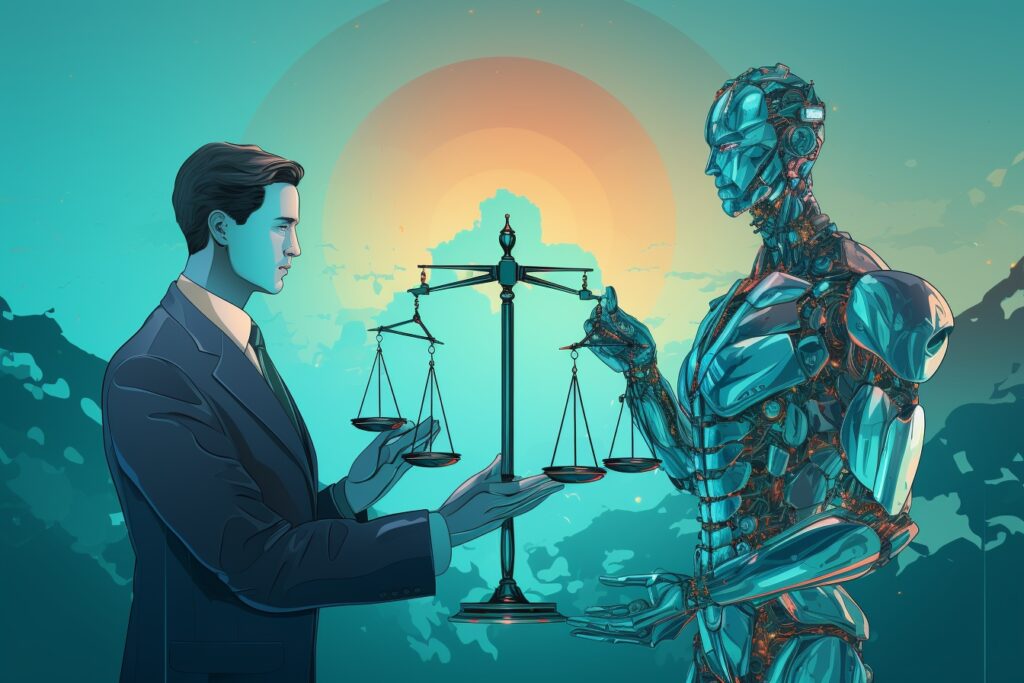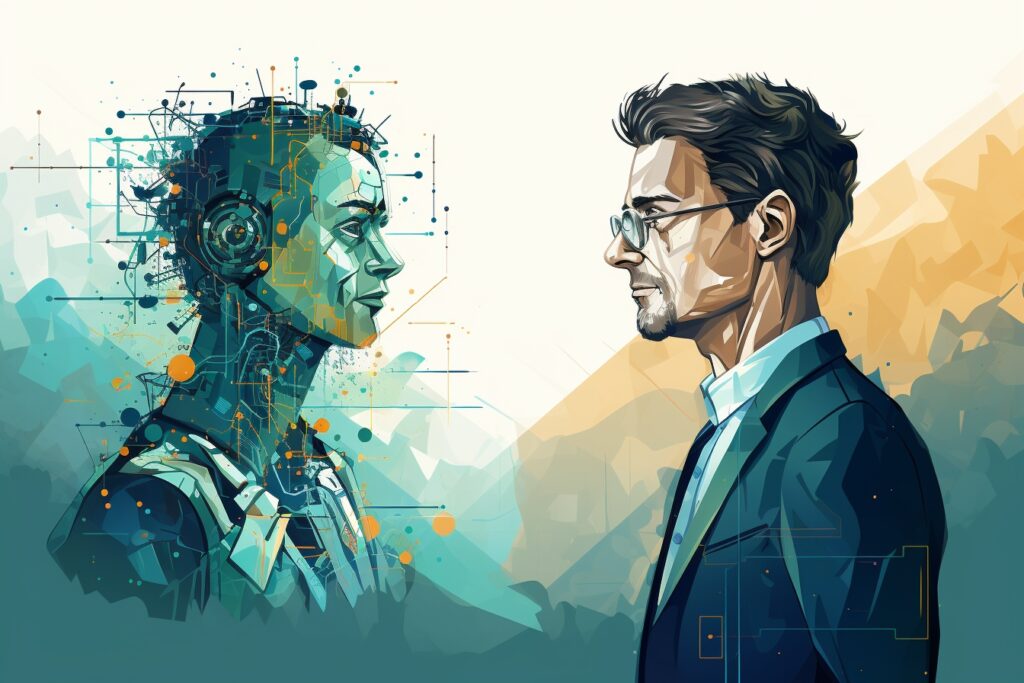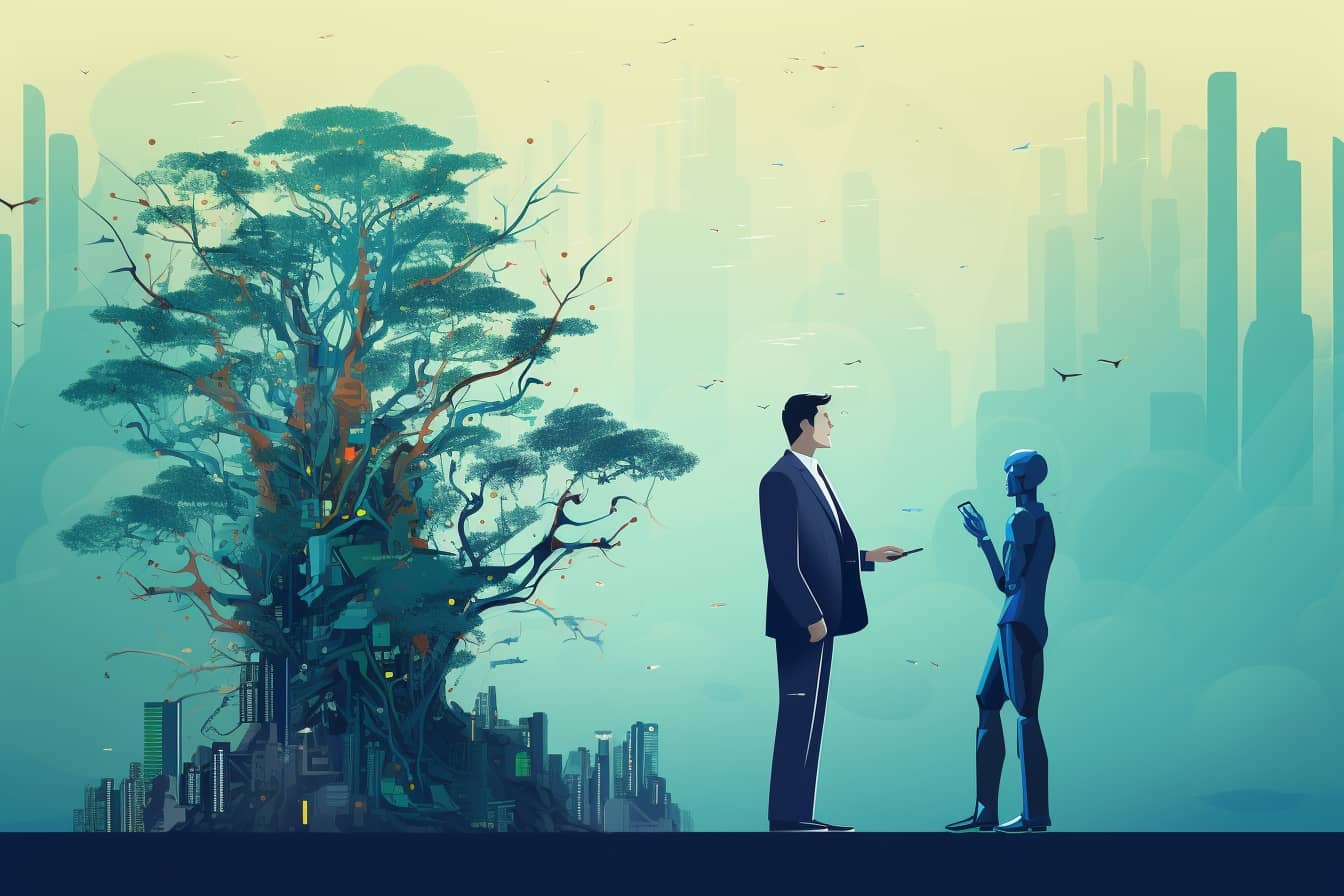The advent and introduction of advanced artificial intelligence tools such as ChatGPT have raised very strong concerns regarding the future of the job market. Many feared that AI would replace entire industries, making numerous job roles obsolete. However, eight months after the launch of ChatGPT, reality has currently turned out to be very different from expectations. Instead of replacing humans, AI has positioned itself as a complement, improving efficiency and productivity in various sectors.
The evolution of AI in the world of work
The rise of artificial intelligence has brought with it a host of predictions and speculations. Many believed that, with the advent of tools like ChatGPT, entire industries would be automated in the blink of an eye. He imagined a future in which lawyers, engineers and journalists would become obsolete due to technology. So, from one day to the next.
As often happens, reality took a different turn. Contrary to predictions, in its first 8 months of “life” the massive adoption of AI did not lead to large-scale layoffs. The United States, for example, maintains an unemployment rate of 3,5%, the unemployment rate in Europe it has even decreased. Data that belies the apocalyptic tale of an AI decimating the workforce. How is it possible? The answer lies in the very nature of artificial intelligence.
AI as an ally, not an adversary

Sarah Guo, a venture capitalist specializing in AI startups, states with conviction: “The disappearance of entire industries due to AI is a myth.” And she's right. Take, for example, the legal sector. It was thought that ChatGPT he would replace the lawyersbut the reality is quite different. Allen & Overy, a world-renowned law firm, has adopted an AI tool called Harvey without replacing a single employee.
Harvey analyzes legal sites, contracts and other complex documents, providing answers and summaries. It was the tool that, according to many, would send paralegals and junior associates looking for a new job. Instead, it improved their performance, making them more efficient and valuable to study. Daren Orzechowski, a partner of the firm, emphasizes the importance of accuracy and reliability in the legal sector. And, as he recalls, when law books were digitized, there was a similar concern. Yet, lawyers are still here, and in greater numbers than before.
The true nature of ChatGPT and “colleagues”
At least at the moment, AI is great at handling a specific task, but struggles to handle a range of tasks as well as a human would. This makes ChatGPT and other systems perfect as assistants, but not as substitutes.
Another striking example is the radiology sector. Despite forecasts, radiologists are still in great demand. At the Mayo ClinicFor example, around 500 radiologists use AI tools to analyze and classify body images. AI helps them be more productive, making up for the shortage of medical personnel. Doctor Bradley Erickson, a neuroradiologist at the Mayo Clinic, points out that AI may even increase demand for radiology.

ChatGPT and its “brothers”, the future is still in the hands of man
Whenever you hear about companies replacing workers with AI, it's best to approach the news with a critical spirit. Often, these companies are already downsizing their staff and are only trying to present the situation in a context of "forced" choice by ruthless competition due to artificial intelligence. None of this.
Daron Acemoglu, an economics professor at MIT, points out that even if this technology becomes advanced enough to replace entire industries in the future, companies will still have a choice. There is no predetermined outcome.
And, for now, it seems that betting on the man is still the right choice.


